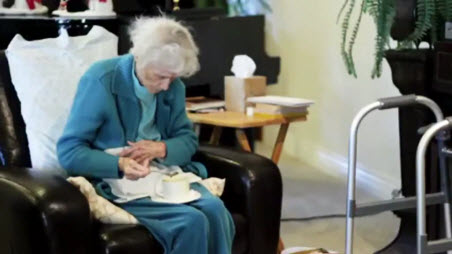If you are worried about your memory or think you may have dementia, it’s a good idea to see your GP. If you’re worried about someone else, who you think has dementia, encourage them to make an appointment and perhaps suggest that you go along with them.
If you are forgetful, it doesn’t mean you have dementia. Memory problems can also be caused by depression, stress, drug side effects, or other health problems. It can be just as important to rule out these other problems or find ways to treat them. Your GP will be able to run through some simple checks and either reassure you, give you a diagnosis, or refer you to a specialist for further tests.
An early diagnosis gives you both the best chance to prepare and plan for the future, and receive any treatment. With treatment and support from healthcare professionals, family and friends, many people are able to lead active, fulfilling lives.
What to expect when you see your GP about dementia
Your GP will ask about your symptoms and other aspects of your health, and will give you a physical examination. The doctor will organise some blood tests and ask about any medication you are taking, as these can sometimes cause symptoms similar to dementia.
You will also be asked some questions or given some mental exercises to measure any problems with your memory or your ability to think clearly.
Read more about the tests used to diagnose dementia.
Referral to a dementia specialist
Dementia can be difficult to diagnose, especially if your symptoms are mild. If your GP is unsure about your diagnosis, they will refer you to a specialist such as a neurologist (an expert in treating conditions that affect the brain and nervous system), an elderly care physician, or a psychiatrist with experience of treating dementia.
The specialist may be based in a memory clinic alongside other professionals who are experts in diagnosing, caring for and advising people with dementia and their families.
It’s important to make good use of your consultation with the specialist. Write down questions you want to ask, make a note of any medical terms the doctor might use, and ask if you can come back if you think of any more questions. Taking the opportunity to go back can be very helpful.
The specialist may want to organise further tests, which may include brain scans such as a computerised tomography (CT) scan, or preferably a magnetic resonance imaging (MRI) scan.
If they are still not certain about the diagnosis, you may need to have further, more complex, tests.
Getting your dementia diagnosis
Once you’ve had the necessary tests, your doctor should ask if you want to know your diagnosis.
They should explain what having dementia might mean for you, and should give you time to talk more about the condition and ask any questions you may have.
Unless you decide otherwise, your doctor or a member of their team should explain to you and your family:
the type of dementia you have, or if it is not clear, what the plan to investigate further will entail; sometimes, despite investigations, a diagnosis may not be clear, in which case the doctors will review you again after a period of time to reassess you
details about symptoms and how the illness might develop
appropriate treatments that you might be offered
care and support services in your area
support groups and voluntary organisations for people with dementia and their families and carers
advocacy services
where you can find financial and legal advice
You should also be given written information about dementia.
Questions to ask about your dementia diagnosis
In case you can’t think of any questions to ask you’re doctor, it may be worth asking:
which type of dementia you have
details about the tests or investigations you should have
how long you will have to wait until you have the tests
how long it will take to get the results of these tests
what will happen after you get the results
Ongoing dementia assessment
Once you have been given a diagnosis, your GP should arrange to see you from time to time to see how you’re getting on. Because dementia is a progressive condition, the doctor may arrange another appointment with the specialist, perhaps after six months or a year.
The GP and the specialist may also jointly prescribe medications that may be helpful in treating some of the symptoms of dementia. However, not everybody will benefit from these drugs.
An ongoing assessment of your dementia may be a good time to consider your plans for the future, perhaps including a Lasting Power of Attorney to take care of your future welfare or financial needs, or an advance statement about your future care.
